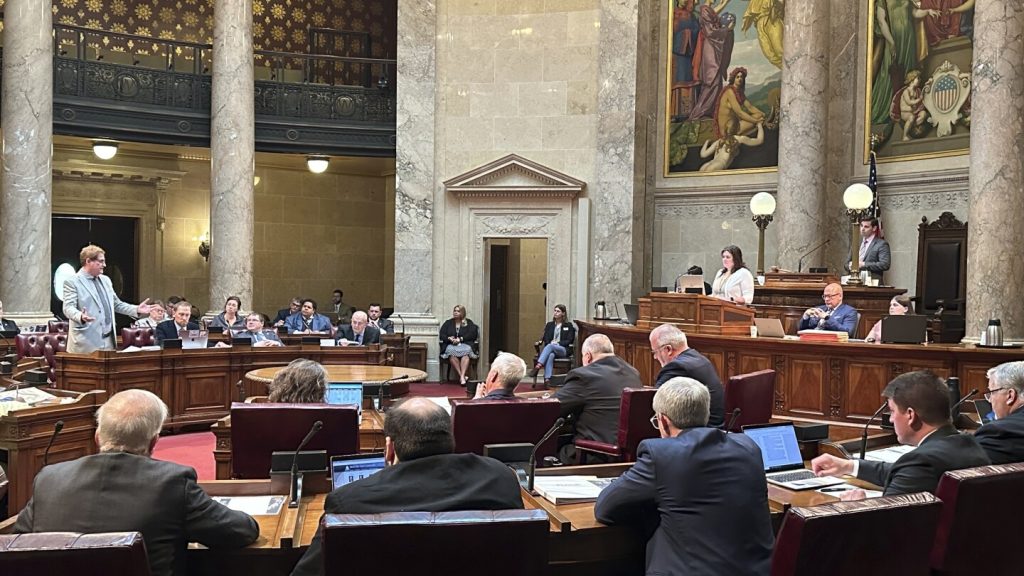The Republican-controlled Wisconsin Senate voted to override nine vetoes of Democratic Gov. Tony Evers, including bills combatting PFAS pollution, setting population goals for gray wolves, and requiring a post-election audit. However, despite the Senate’s votes, Evers’ vetoes are likely to stand, as a two-thirds majority in both chambers is needed for a successful override. The Assembly, where Republicans do not have a two-thirds majority, has not scheduled a vote on the overrides.
One of the most contentious fights between Republicans and Evers was over PFAS pollution, with the Senate voting to override a veto of a bill that would have allocated $125 million to combat pollution from these harmful chemicals. Evers and Republicans have not been able to agree on the best approach to dealing with PFAS contamination, with Evers urging Republicans to release the approved funding and Republicans preferring to funnel it through a grant program. Democratic leaders criticized Republicans for not taking action on PFAS pollution, while Republicans accused Democrats of playing politics.
In addition to the PFAS bill, the Senate also voted to override a veto of a bill providing $15 million for emergency hospital services in Chippewa or Eau Claire counties. Similar to the PFAS funding issue, Evers and Republicans have disagreed on how to allocate this money for healthcare services following hospital closures in the area. The Senate also voted to override vetoes on bills related to post-election audits, gray wolf population goals, teacher apprenticeship programs, and identification cards for non-citizens. Not a single Democrat voted for any of the overrides.
The overrides, while likely to be unsuccessful, will give Republicans ammunition for the upcoming election campaign. The votes on the contentious issues of PFAS pollution and healthcare funding highlight the ongoing disagreements between Republicans and Democrats in Wisconsin. Evers has called on lawmakers to release the approved funding for PFAS pollution, while Republicans have raised concerns about the allocation of the money through a grant program. The Senate’s actions reflect the deep divisions between the two parties on key policy issues.
Despite the symbolic nature of the overrides, they demonstrate the continuing challenges of governance in a politically divided state. The inability of Republicans and Democrats to reach consensus on PFAS pollution, healthcare funding, and other issues underscores the need for effective bipartisan cooperation in addressing pressing challenges facing the state. The upcoming November election will be an important test of the public’s response to the actions and rhetoric of both parties in Wisconsin’s ongoing political struggles.


